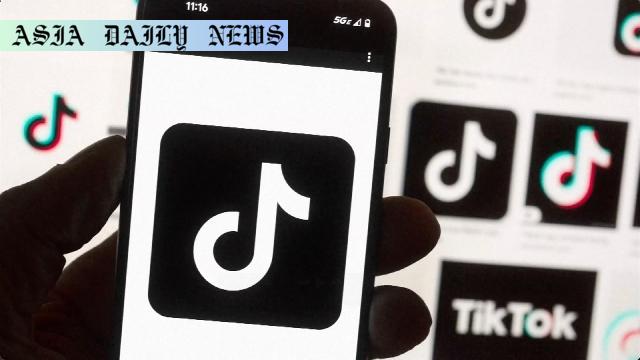TikTok’s service in the US is set to resume after President Trump’s executive action provides temporary clarity for the app’s operation.

TikTok’s tumultuous status in the United States faced another significant development as the company confirmed that it is restoring its service to users within the country. The announcement followed comments from President Donald Trump, who stated his intention to issue an executive order to delay the implementation of a legal ban on the popular video-sharing app. This temporary suspension of restrictions provides a brief reprieve for TikTok and its millions of American users.
For context, TikTok’s operations in the US had come under legal scrutiny due to concerns about the app’s parent company, ByteDance, being based in China. A recent law mandates that unless ByteDance sells its US business to an American entity, the app would face restrictions, including barring IT companies from offering updates or allowing new downloads of the app within the country. As a preemptive measure, TikTok had paused its services before this law came into effect, leaving its user base uncertain about its future.
In his statement on Sunday, President Trump outlined his plan to delay the ban, giving TikTok more operational latitude. The executive order, set to be signed on Trump’s first day back in office, will ensure there are no penalties for companies maintaining TikTok’s functionality in the US. This provides essential legal clarity to service providers and allows the app to continue functioning for American users.
Trump also expressed his vision for TikTok’s long-term presence in the country. He proposed a joint venture that would grant the United States a 50% ownership in TikTok’s US operations. According to his statement, this strategy aims to not only secure the app’s future in the US but also ensure that TikTok operates under trustworthy ownership that aligns with American values and security policies. By showing a commitment to negotiating a solution, Trump positioned his administration as a mediator in the highly contested matter.
TikTok, in turn, issued a statement acknowledging the clarity provided by the President’s proposed actions. The company expressed gratitude for the executive order, which would give legal assurances to its partners and service providers. TikTok also reaffirmed its intention to work closely with the administration to secure a long-term and stable solution that ensures the app’s ongoing presence in the United States.
While this temporary resolution provides relief for the app’s users, it leaves unanswered questions about TikTok’s future ownership and operational model. The suggested joint venture introduces intriguing possibilities, but it would require careful legal considerations and likely face regulatory scrutiny. For now, the focus is on ensuring seamless service for American users and navigating the geopolitical and commercial challenges that surround the app.
This developing story highlights the intersection of technology, politics, and international relations. TikTok has become more than a social media platform; it is now a symbol in the ongoing narrative about data privacy, national security, and globalization. As discussions continue, it will be important to monitor how these legal and governmental decisions shape the future of TikTok and similar platforms that connect millions of people across the globe.
Commentary
The recent updates regarding TikTok’s legal status in the United States underscore the complex interplay between politics, technology, and global business interests. With President Trump’s intervention to temporarily delay the implementation of a ban, a door has been left open for TikTok and its millions of users who rely on the platform daily for both expression and connection.
On a broader level, this episode reveals how the rapid evolution of technology often outpaces the regulatory frameworks intended to govern it. Platforms like TikTok operate in an increasingly globalized digital space, making it progressively harder for governments to implement national-level policies without global ramifications. TikTok’s parent company, ByteDance, has been caught in the crossfire of US-China relations, bringing forth allegations of data privacy concerns and national security risks—issues that governments worldwide are urgently trying to address.
President Trump’s suggested 50% joint venture offers a nuanced way forward, balancing concerns about security with the need to preserve technological innovation and user access. However, this raises questions about whether governments should or should not become partial owners of private tech companies. While the involvement may create short-term solutions, it could potentially set a precedent for government intervention in private businesses, raising ethical and economic concerns for the global market.
TikTok’s response to this development has been strategic and cooperative, positioning itself favorably as a platform willing to adapt to national concerns. This suggests a growing trend of tech companies adjusting their structures and operations to adhere to the geopolitical environments in which they operate. How TikTok navigates this will likely serve as a case study for other tech giants facing similar challenges.
In summary, while Trump’s executive action offers momentary relief, its significance extends beyond TikTok itself. This situation raises important questions about the future of global tech governance, the balance between innovation and regulation, and the role of governments in determining the fate of popular apps. As developments unfold, it is crucial to approach these issues with a balanced perspective, recognizing the interests of both the private sector and federal authorities.


